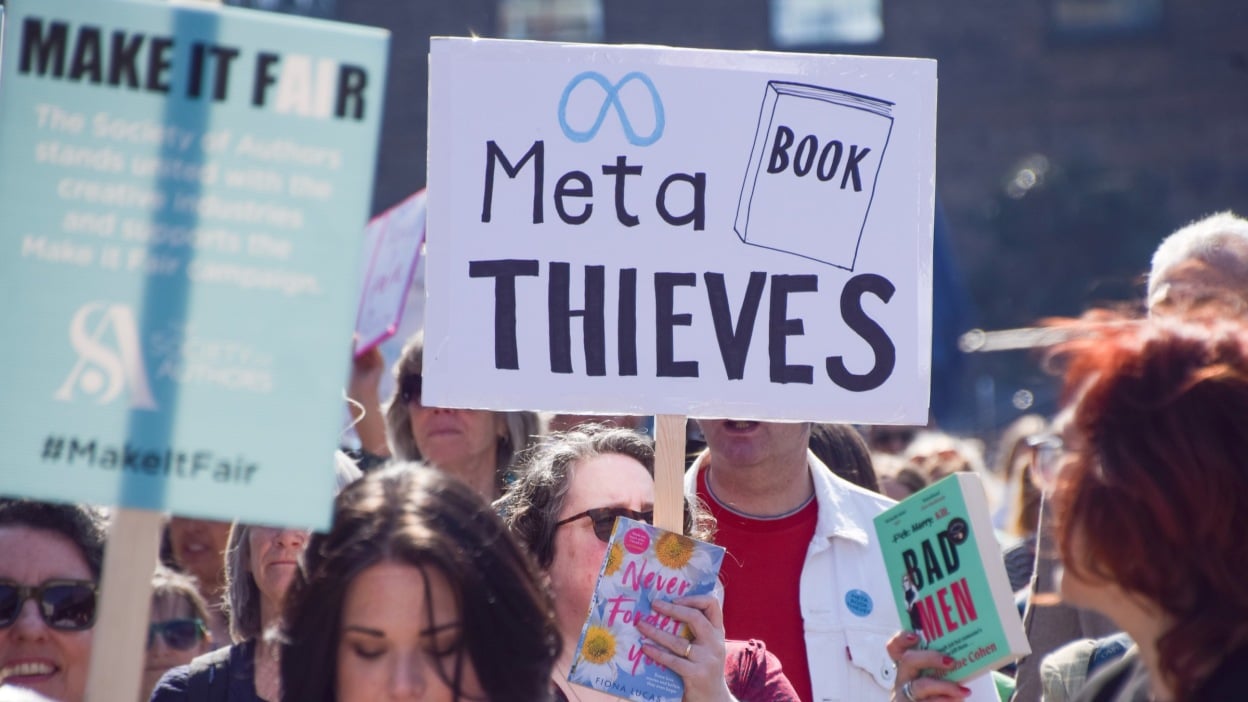Protesters marched on Meta offices after the company was accused of using pirated books for AI training. The controversy comes as plaintiffs in the landmark Kadrey v. Meta case have submitted the U.S. Copyright Office’s recent report on AI and copyright law as evidence in their lawsuit against the tech giant.
The Copyright Office Report
The 113-page report, titled ‘Copyright and Artificial Intelligence Part 3: Generative AI Training,’ examined the legal issues surrounding the use of copyrighted works to train AI models. It spent around 50 pages analyzing the four factors of the fair use doctrine, citing historic legal cases that have ruled both for and against fair use. While the report doesn’t make blanket conclusions, its analysis generally favors copyright holders over AI companies.

The report’s assessment of the fourth factor of fair use – which considers the effects on current or future markets – could be particularly damaging for Meta. The Copyright Office found that ‘the use of pirated collections of copyrighted works to build a training library, or the distribution of such a library to the public, would harm the market for access to those works.’ The analysis also considered possible market dilution for authors, noting that ‘if thousands of AI-generated romance novels are put on the market, fewer of the human-authored romance novels that the AI was trained on are likely to be sold.’
Implications for Meta and the Kadrey v. Meta Case
The plaintiffs in the case, including artists and authors such as Junot Diaz, Sarah Silverman, and Ta-Nehisi Coates, argue that Meta’s use of pirated books to train its AI model, Llama, deprived them of licensing opportunities. Meta counters that its AI model’s transformative output makes the fair use argument irrelevant. While the report favors the plaintiffs’ argument, it’s unclear whether the judge will agree. The pre-publication version of the report could potentially be edited or rescinded by future leadership at the Copyright Office.

The report’s release was followed by the unexpected firing of Shira Perlmutter, the head of the Copyright Office, by President Donald Trump. While the exact reason for her firing is unclear, some copyright lawyers speculate that the report may have played a role. The plaintiffs have submitted the report as a ‘Statement of Supplemental Authority’ in their class-action lawsuit, hoping it could tip the scales in their favor.


